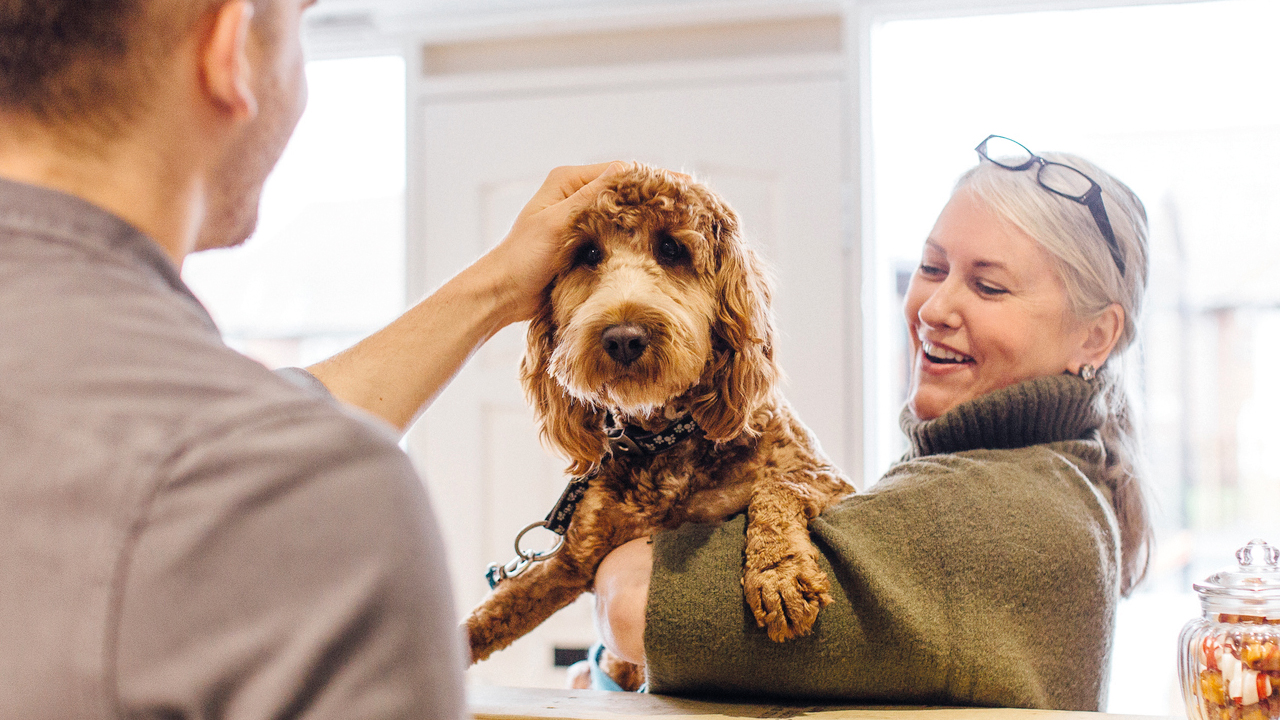In Clinical
Follow this topic
Bookmark
Record learning outcomes
There is no legal definition of veterinary pharmacy. Traditionally, a veterinary pharmacist would probably be described as a pharmacist specialising in supplying veterinary medicines and other products for agricultural and farming use.
To help pharmacists specialise in this area it used to be possible to study for a postgraduate diploma in Agricultural and Veterinary Pharmacy, but this qualification is no longer offered in the UK. The route to becoming a veterinary pharmacist is to become a qualified pharmacist and then to do postgraduate study and/or gain experience in the veterinary sector.
Making the move
Elizabeth Wright is veterinary pharmacist at the University of Edinburgh Veterinary School. She completed a PgDip in veterinary pharmacy with Harper Adams.
“After graduating I spent my pre-reg year at Boots and then continued into a pharmacist/store manager role with them. I decided to do some travelling after being qualified for just over two years and took a sabbatical.
“When I returned, I saw that a veterinary pharmacist job was being advertised at the University of Edinburgh. The pharmacy management skills I had stood me in good stead and I got the job. I’ve been at Edinburgh University for 16 years now and have grown the pharmacy team from one to four staff members.”
Elizabeth is mainly based in the Hospital for Small Animals but also supports the equine hospital and farm practice.
Špela Oberstar is a hospital veterinary pharmacist. “I had a difficult time deciding between veterinary and medical school when choosing my career and I always thought of pharmacy as a path that gave me an entry point
to both areas. How true this turned out to be when I saw that our veterinary hospital was looking for a pharmacist to cover maternity leave.
“I quickly left community pharmacy and dived right into it. The jump was massive to begin with as I had no previous veterinary medicines knowledge, but I have enjoyed immensely closing the knowledge gaps along the way. I stayed in the role part-time after my counterpart returned from maternity leave and I now combine this role with a hospital pharmacist post in a NHS hospital in order to stay in touch with human medicine.”
Pet owners and the financial squeeze
A new survey for NOAH (National Office of Animal Health) shows the cost-of-living crisis is impacting the ability of dog and cat owners to continue to afford to care for their pets.
The survey, conducted by Kantar in December 2022, shows people are still generally positive about pet ownership, but some groups are more likely to find caring for them a struggle.
“The impact is greater for younger pet owners, those who describe themselves as having been highly affected by the cost-of-living crisis and those who may have additional responsibilities like a member of their household having a vulnerable immune system,” says NOAH chief executive Dawn Howard.
The survey found that while people continue to prioritise their pets, prevention of disease could be impacted. “Our survey showed people’s financial situation had a significant impact on vaccinations in the past year,” says Howard.
Those struggling most with the cost-of-living crisis and those who struggle to afford the things they want were the least likely to have had their pet vaccinated in the past 12 months (only 47 per cent, compared to 73 per cent of those saying they were financially comfortable). Cat owners are twice as likely as dog owners not to vaccinate, and older pets are significantly less likely to be vaccinated.
Who can supply veterinary medicines?
Registered pharmacists are one of the three categories of practitioners who are permitted under the Veterinary Medicines Regulations (VMR) to prescribe or supply veterinary medicines. The other categories are veterinary surgeons and suitably qualified persons (SQP). Specifically, a registered pharmacist can:
- Supply POM-V (prescription only medicine – veterinarian) medicines
- Prescribe and supply POM-VPS (prescription only medicine – vet, pharmacist, SQP) medicines
- Supply NFA-VPS (non-food animal – vet, pharmacist, SQP) medicines.
A pharmacist can supply veterinary medicines from any registered pharmacy, or a registered veterinary practice, or from ‘SQP-registered premises’.
This means that pharmacists working in ‘human’ pharmacies (physical or online) may be presented with veterinary prescriptions to fulfil, or they might offer for sale, and advise on, parasiticide medicines and perhaps other veterinary products.
Most veterinary practices supply their own medicines from dispensaries. The prescribing vet is ultimately responsible for the supply and anyone supplying medicines under their direction must be deemed competent, but there is no requirement for anyone involved in dispensing medicines in a veterinary practice to have any formal dispensing or pharmacy qualification.
A suitably qualified person (SQP), also known as a registered animal medicines adviser, is permitted by the VMR to supply POM-VPS veterinary medicines (certain vaccines, para-siticides and supplements for farm animals) and NFA-VPS medicines (companion animal parasiticides) for specific species groups, according to the person’s SQP qualification.
SQPs may supply veterinary medicines from a SQP-registered premises, a registered pharmacy or a registered veterinary practice. In veterinary practice, many registered veterinary nurses and other staff have acquired the SQP qualification.
How can pharmacists learn more about veterinary medicines?
There is no specific postgraduate qualification in veterinary pharmacy offered in the UK at present. Options for further study include:
- The SQP qualification, which is offered by the SQP regulators AMTRA, Vetpol (which also offers a Veterinary Pharmacy Manager course) and VetSkill
- The Royal College of Veterinary Surgeons (RCVS) offers a series of free webinars ‘Managing veterinary medicines: staying legal and promoting safety’
- Training days in veterinary dispensary management offered by the Veterinary Medicines Directorate (the veterinary medicines regulator in the UK)
- Joining Veterinary Prescriber’s Virtual Veterinary Medicines Academy to learn about all aspects of veterinary medicines (you don’t need to be a vet to join)
- The National Animal Disease Information Service (NADIS) has educational content on farm animals
- Another helpful link is the Society of Veterinary Hospital Pharmacists.

